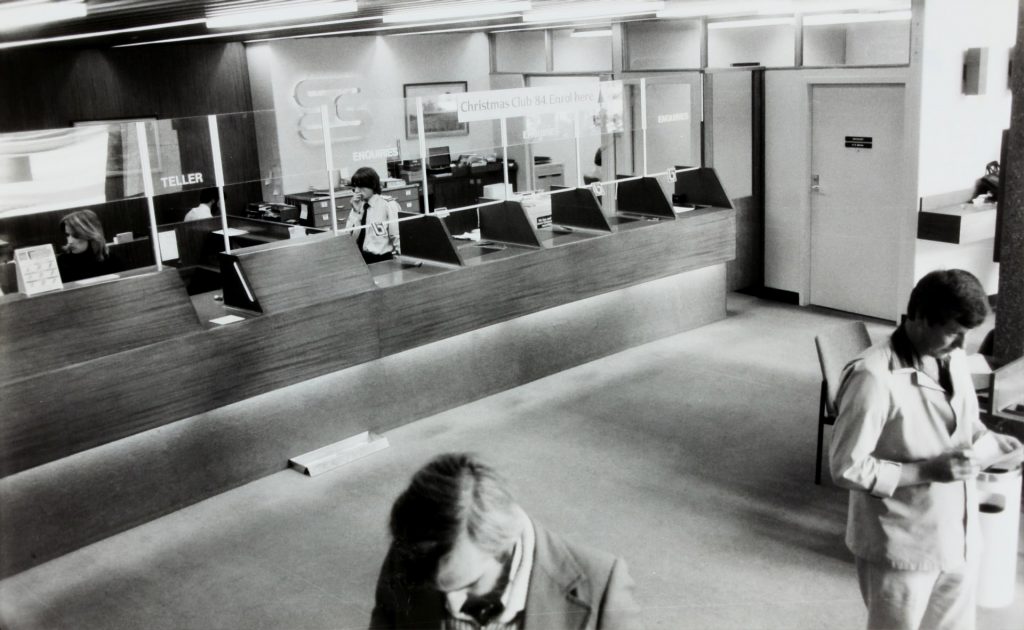Finishing your college degree and looking for a job? If you are just starting to look for a career, you might get lost in a sea of choices. There are many opportunities out there, and with technological advancements, some jobs opportunities in various fields are getting scarcer, with the risk of dying out forever. These careers are not worth pursuing long term since they are likely to disappear in the near future. Below are 10 such jobs you should stay away from.
10. Agriculture workers

Agriculture workers are mainly farmers and fruit pickers, for people who work in orchards. As technology advances, more and more machinery in all stages of farming have been deployed to replace human workers.
In soil cultivation, the act of preparing fertile soil for farming, people used to harness oxen or horses with ploughs, horses with plough to manually dig into the soil bed, and digging irrigation canals to ensure that their crops get sufficient water. In modern days, however, people use advanced machinery such as rollers and cultivators for tooling the soil, and rotators to water crops.
In seed planting, instead of manually having to plant the seeds or saplings by hand, seed drills and planters can be fitted behind trackers to be pulled along the field, efficiently sowing the land.
For fertilizing the fields, sprayers and terragators can be deployed, depending on whether the fertilizer to be deployed is in liquid or solid form. For irrigation, instead of canals or dams, modern day farmers have a wide array of choices. They can choose to use micro spray heads for drip irrigation, sprinkler systems that can water crops using a computer system, or even grow hydroponics.
For product sorting, the part of farming that traditionally required the most manual work, now can be done with sorter machines as well. These sorters can sort produce via weight, color, shape, length, or even blemishes.
With farming machines doing so much work, existing farmers can produce the same or even more crops than before with less human assistants. This is evidently a dying job to avoid.
9. Financial Planners

Financial planners are agents who make money managing their clients’ wealth, based on the client’s risk profile and investment goals. These goals can include saving for retirement, asset allocation, risk management and more. Clients can be individuals or corporations, both big and small. Planners invest funds from their clients in various stocks, funds and properties, working their clients’ money to make more of it.
Financial planners usually take a fee to manage the funds under them. Whenever their client makes money, financial planners also take a cut of the profit. This career used to make those in this field wealthy, especially if they are good in selecting the right type of assets to invest in. Planners can also specialize in one field, such as estate planning.
With the rise of Artificial Intelligence (AI) technology, however, computers are getting better than humans at predicting stock charts and other similar graphs. Interested clients can simply take a quiz to assess their risk tolerance, and a personalized robo-advisor tailored to their results in the quiz can take over their human counterparts’ job. As AI predicting prowess continue to become more accurate, machines may very well replace human financial planners.
8. Mortgage Brokers

Mortgage brokers are white collar professionals that do only real estate deals. They basically act as the intermediate party between borrower and lender, where the borrower is interested in purchasing a piece of land or property. Borrowers can be individuals or a company, and lenders are usually a bank or financial institution.
They gather the borrower’s data, documents and credit reports, to determine if the borrower is able to pay back money to a lender. They also deal with the paperwork that comes with property ownership transfer and loans agreements.
Computers, however, are also taking over this role. Since most of the paperwork is filed in a similar way, computers can use algorithms to run through a buyer’s financial reports and determine their ability to pay back the lender. Computers can also easily fill up forms automatically with borrowers’ data to pass on to the lender. Borrowers can easily find the automated online broker to do such tasks for them, reducing the need for human mortgage brokers.
As the younger generation become more tech savvy, mortgage brokers are likely to disappear in the near future.
7. Bank Tellers

These folks are the ones standing behind the counter (and sometimes glass panels as well), serving the little old ladies and elderly gentlemen who form queues to withdraw and deposit their life savings every afternoon. Always with a smile and willing to help, bank tellers have helped to sort notes, open bank accounts, cash checks and collecting loan monies.
With the rise of online banking further reducing the need for tellers after the arrival of the ATM, jobs for bank tellers are expected to be massively reduced, as the younger generation are more used to the conveniences of online banking. This also reduces the chance of the bank being robbed, a double win for the bank due to saving on human labor cost and reducing risks.
Soon, this will be one of the jobs that will join other obsolete jobs, to be faded into history.
6. Travel agents

Before the days of online booking for planes and hotel, trying to book a flight to a foreign hotel at some exotic land was a hassle. Travel agents were needed to simplify the process, since manually calling up overseas airlines and hotels one by one was not something a holidaymaker wanted to deal with.
However, the Internet has all but taken over most travel agents’ businesses. Travelers can book a hotel in Thailand, or the next flight out to South Africa with the click of a mouse or the tap of a button on a smartphone screen. Many travel agencies have shut down, unable to compete with the overwhelming force of the internet. Many travel agents have found themselves out of a job along with the closure of these companies.
The taste for tour groups, once the favorite travelling style of many in the older generation, have also changed over the years. Many holidaymakers who turned to the internet now embrace independent travels and backpacking, hitting the tourism industry even harder.
With the skills of travel agents going out of fashion fast, this is definitely not a future-proof career path.
5. Accountants and Bookkeepers

Accountants mainly prepare monthly and annual financial reports, tax filing, financial audits and budgeting for companies. There are also bookkeepers who do tax filing for individuals, especially those running a sole proprietary.
Due to the relatively complicated tax laws in countries such as the USA, accountants are in high demand and was a highly lucrative career. However, seizing this opportunity, many savvy entrepreneurs have created various software to replace the role of the accountant, reducing the need for this job.
As this trend continues, accountants as a career may be fading away into the shadows, just like the rest of the dying jobs in this list.
4. Cashiers

Cashiers used to be one of the top jobs for high schoolers and undergrads during their summer breaks. Their jobs involves scanning customers’ items, putting said items into bags, handling payment, and occasionally resolve complaints from unhappy customers. It is not a job requiring a high level of skill, but definitely tiring, since most cashiers tend to stand on their feet the entire day to serve customers.
More and more eateries and supermarkets, however, are implementing self-checkout express counters, massively reducing the need for human cashiers. These automated self-checkout counters are fast, always give the correct change, and allows customers to pack up goods with their own shopping bags. A single staff member can be stationed to watch over an entire row of machines and help customers when needed, decreasing human labor needed to process checkouts.
This shift in labor needs have caused a lot less cashiers to be hired, and many high schoolers turned to jobs such as food delivery for a holiday job instead.
3. Postal service workers

Snail mail used to be the way for organizations and people to receive their bills, catalogs, magazines and more. Postal service workers used to be in high demand, needed to sort through letters and parcels manually, delivering mail to homes and businesses, and ensuring that registered mail reach the hands of recipients.
However, long gone are the days of snail mail, with the speed and convenience of email. Utilities can now be paid on the internet, bank statements can be downloaded from online banking, and reading material such as newspaper and magazines have gone digital. Many post offices have been operating at a loss, only barely able to sustain due to government aid.
With the need for postmen and mail sorters at an all-time low, postal service jobs are definitely not future proof. Avoid at all cost!
2. Delivery personnels

With the rise of e-commerce, most people believe that delivery companies and personnel are making a killing. The parcel delivery industry is growing at an incredible rate, as more and more stores are going digital to engage their customers and conduct business online. This industry seems to be doing great, so why is becoming a delivery personnel a bad idea?
Even though parcel delivery is an in-demand job now, this is very likely to change soon. Drones are becoming more advanced, and companies like Amazon have launched delivery drones that deliver parcels directly to customers’ doorsteps, skipping out on deliver people altogether. Although this technology is still at an early stage, big companies are pouring money for research into this area as using delivery drones cuts operation costs for the companies.
With a future the color of sunset, delivery personnel jobs should not be treated as suitable for a lifelong career.
1. Taxi / Cab drivers

Cabs are indispensable for people on the move. After a night out with friends, a tiring day at work, or the need to rush off to the airport, a cab is usually the fastest and most comfortable way to get there.
Private hire drivers, however, changed that. Companies like Uber and Lyft propelled millions of people into the driving trade, dividing up the pie of the taxi drivers. These companies made it easy for people to get drivers on demand, reducing the need to hail a cab off the streets.
While experienced cab drivers know all the secret shortcuts of a city (Google maps can sometimes lead drivers astray!), the need for such experience is diminished as many people want to track their journey through their smartphone to ensure that their driver is going in the correct way, and to ensure their own safety.
Tourists arriving to a new city do not do cab drivers much favor either: they can easily get an on-demand chauffeur just by tapping on their phones, since the location detection service of these on-demand apps get the nearest drivers based on users’ location. This makes getting customers harder and harder for these hard-working people who drive for a living.
This does not make being a private hire driver a good idea either. Autonomous driving vehicles are also the touted as the next big thing, with many companies trying to create self-driving cars of the future. Big corporations like Google and Uber are looking into this new technology, and this will further eliminate the need for human drivers.
Unless really desperate, one should not treat driving a cab or being a private driver hire as a career path.
Bonus: Radiologists technician and Radiologists

For ladies who took an X-ray scan before, this familiar question is asked before the scan starts by a professional in a lab coat: Are you pregnant?
These lab coats are radiologist technicians, and they used to be good solid careers. Despite having to work odd hours and weekends, they are well paid to take clear and precise images from X-rays, CT and MRI scans of people who need to have the insides of their bodies examined. They also operate scanning machinery, assists patients when needed, and generally just help out the resident radiologist.
However, as technology advances, less and less such scans are needed, since radiologists are now able to determine a patient’s illness without scans using new imaging software. An image which had to be painstakingly taken and examined could be now classified easily by an AI, effectively replacing many of the duties of both radiologist and their technicians.
While the current stage of AI technology cannot replace radiologists entirely, software might be able to replace human radiologists entirely as time goes on. There are ongoing research into new technology that creates 3D pictures of patients’ bones without X-rays. When combined with AI technology that identify patients’ problems with images, they can almost take over the job of these x-ray specialists. This reduces the risk of cancer rays from X-ray scans, and unfortunately, also reduces the demand for radiologists.
Do you agree or disagree with the jobs that are disappearing on this list? Leave your comments below!

